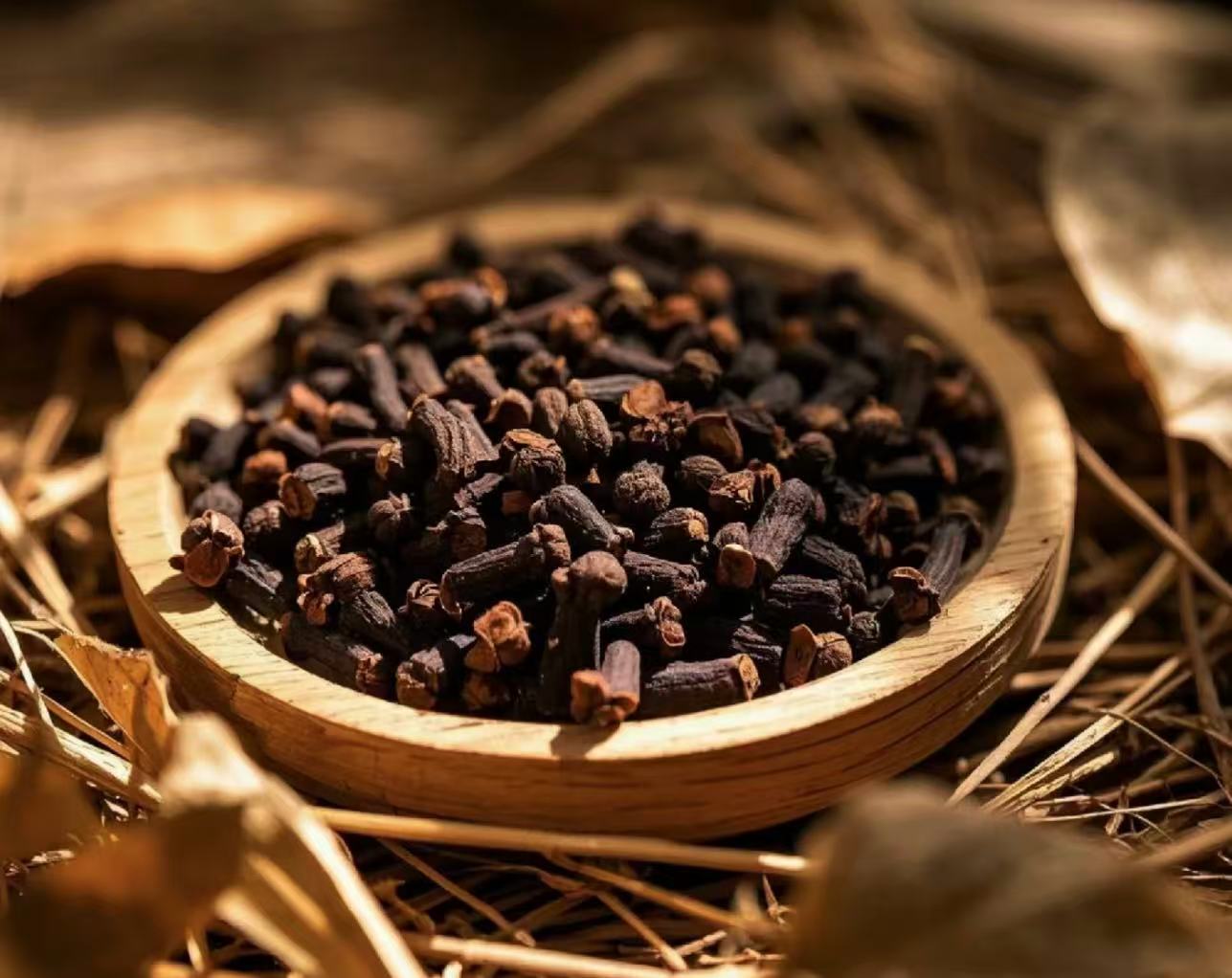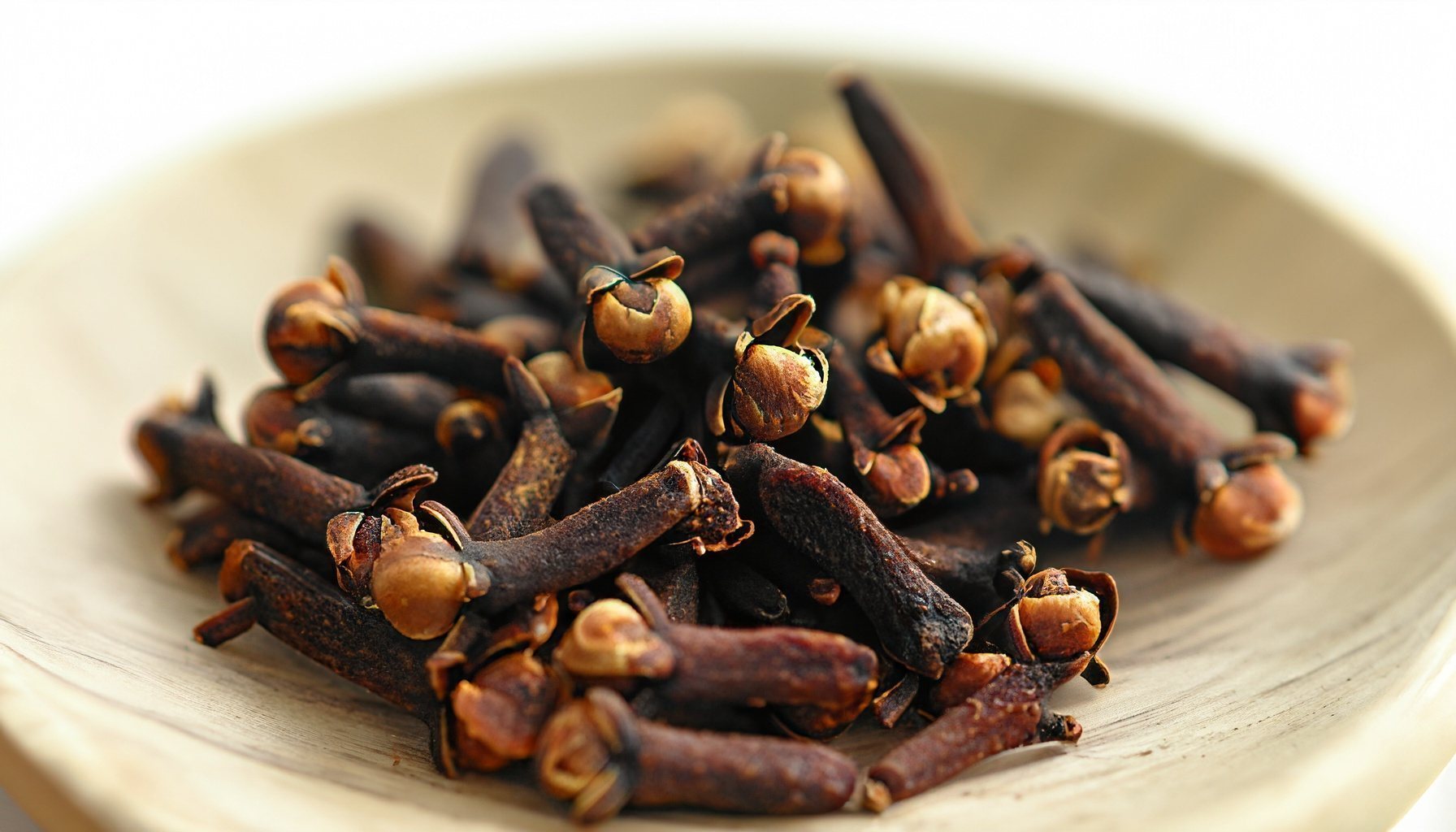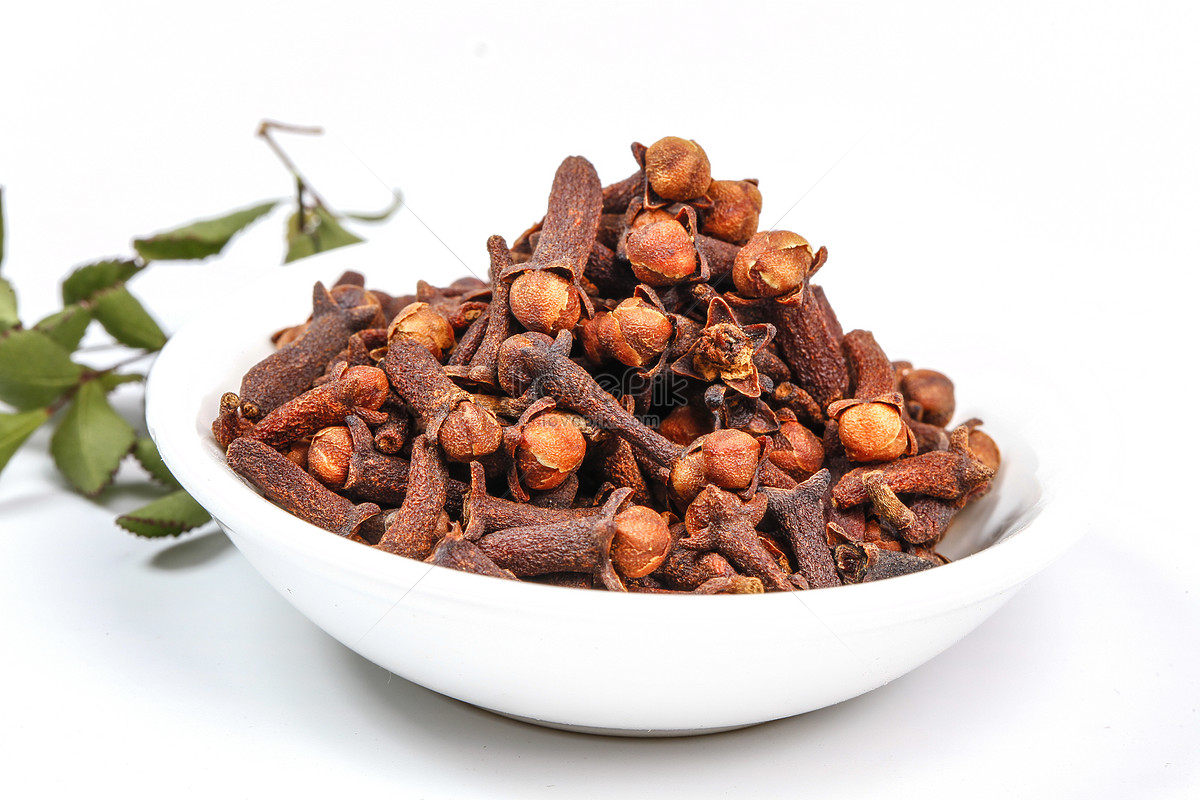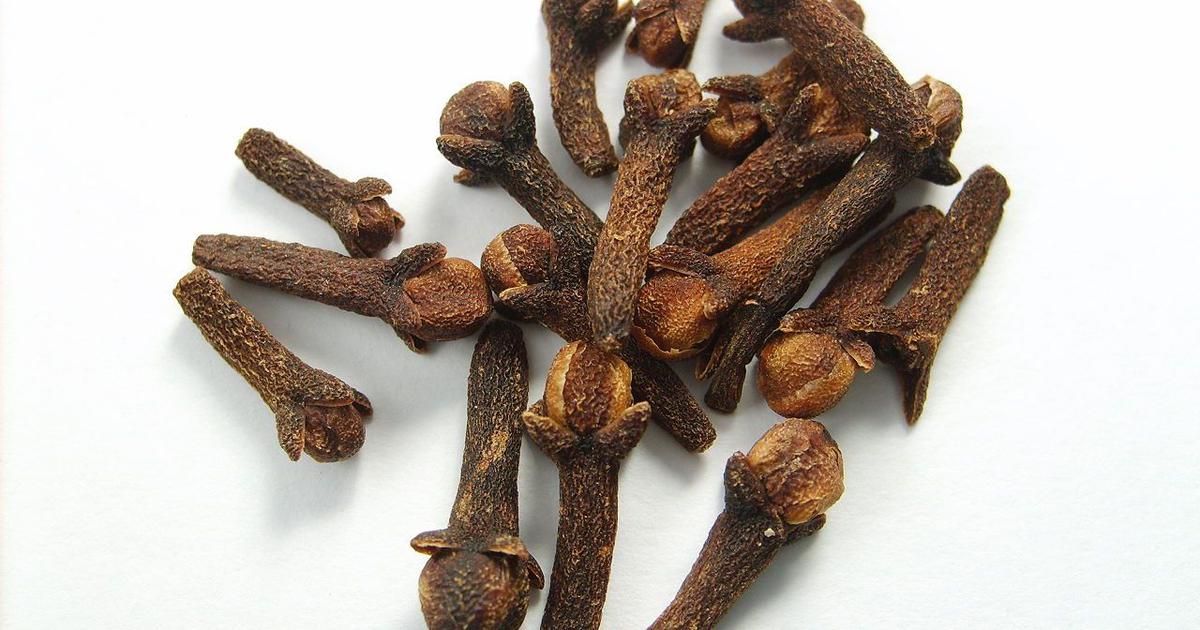Disclaimer: This article is for informational purposes only and should not be considered medical advice. Always consult a healthcare professional before starting any new supplement or natural remedy, especially if you have existing health conditions.
What Are Cloves?
Cloves are one of the world’s oldest and most versatile spices. Known for their warm, slightly sweet, and aromatic flavor, they’ve been used for centuries in both traditional cooking and natural medicine.
Scientifically called Syzygium aromaticum, cloves are actually the dried flower buds of the clove tree, a tropical evergreen native to Indonesia’s Maluku Islands — also known as the “Spice Islands.” Today, they are cultivated widely across India, Sri Lanka, Madagascar, and Tanzania.

How Cloves Grow and Are Harvested
The clove tree thrives in tropical climates with rich, well-drained soil and consistent rainfall. These trees can grow up to 30 feet tall and produce clusters of crimson flower buds.
Harvesting cloves is a delicate process. Farmers pick the buds by hand before they bloom, ensuring the highest oil content and best flavor. The buds are then sun-dried until they turn a deep reddish-brown color — the familiar spice you see in kitchens around the world.
This careful process preserves the compound eugenol, which is responsible for cloves’ distinct aroma and most of their medicinal benefits.

Health Benefits of Cloves
Cloves aren’t just for flavor — they’re packed with powerful nutrients that can support your overall health. Here are some of the top scientifically supported benefits:
1. Powerful Antioxidant Properties
Cloves are rich in antioxidants, particularly eugenol, which helps fight oxidative stress — one of the main causes of aging and chronic disease.
Studies have shown that clove extract can reduce inflammation and protect the body from free radical damage, helping maintain healthier cells.
2. Supports Oral and Dental Health
For centuries, clove oil has been used to relieve toothaches and gum pain. Its natural antibacterial and analgesic properties can help reduce bacteria in the mouth and soothe minor oral discomfort.
Many natural toothpaste brands now include clove oil as a key ingredient.
3. Improves Digestion
Cloves can stimulate the production of digestive enzymes, helping reduce bloating and improve nutrient absorption. In traditional medicine, a small amount of clove tea or clove powder is used to ease indigestion and nausea.
4. Boosts Immunity
Regular consumption of cloves in small amounts may strengthen your immune system. Their antimicrobial properties can help your body fight off infections and viruses more efficiently.
5. Helps Regulate Blood Sugar
Preliminary research suggests that compounds in cloves may help stabilize blood sugar levels by improving insulin function. While more studies are needed, adding a pinch of clove powder to meals may offer mild benefits for blood sugar control.
6. Supports Liver Health
Clove extract has been shown to improve liver function and reduce signs of fatty liver disease in some studies. Its antioxidant properties protect liver cells from damage caused by toxins.

How Cloves Work in the Body
Most of the health benefits of cloves come from eugenol, the natural compound that gives cloves their strong aroma. Eugenol acts as a powerful antioxidant, anti-inflammatory, and antimicrobial agent, influencing multiple systems in the body.
-
It neutralizes free radicals and supports healthy aging.
-
It reduces inflammation in tissues, which may help relieve pain.
-
It fights bacteria, fungi, and viruses, making it a natural defense booster.
In small amounts, eugenol can be beneficial — but it’s important not to overconsume it, as high doses can irritate the liver or digestive system.
Common Uses of Cloves
Cloves can be used in a variety of ways — in both food and home remedies.
In Cooking
-
Add whole cloves to stews, curries, or mulled wine for extra warmth and depth.
-
Sprinkle ground cloves into baked goods like cookies, pies, and cakes.
-
Mix a pinch of clove powder with honey and lemon for a soothing tea.
For Health and Home
-
Clove Oil: Mix a few drops with a carrier oil to ease tooth or gum discomfort.
-
Clove Tea: Steep a few buds in hot water for 5–10 minutes to aid digestion.
-
Aromatherapy: Add a drop of clove oil to a diffuser for a comforting, spicy scent.
Potential Side Effects and Precautions
While cloves are generally safe in small amounts, it’s important to use them responsibly.
-
Avoid high doses of clove oil — concentrated eugenol can be toxic to the liver.
-
Pregnant and breastfeeding women should consult a doctor before using clove supplements.
-
People on blood-thinning medication should use cloves cautiously, as eugenol can slow clotting.
As with any natural remedy, moderation is key.
How to Add Cloves to Your Daily Routine
It’s easy to include cloves in your diet:
-
Sprinkle ground cloves into oatmeal, smoothies, or tea.
-
Use whole cloves in soups or marinades.
-
Brew a cup of clove and cinnamon tea each morning for an immune-boosting ritual.
Even small daily amounts — about half a teaspoon of clove powder — can help your body take advantage of its beneficial properties.

Final Thoughts
Cloves are more than just a spice — they’re a natural powerhouse with centuries of proven health benefits. From improving digestion to protecting your liver, this small flower bud has an impressive range of uses.
Whether you enjoy it in your favorite dessert or sip it as tea, cloves can easily become part of a balanced, health-conscious lifestyle.

